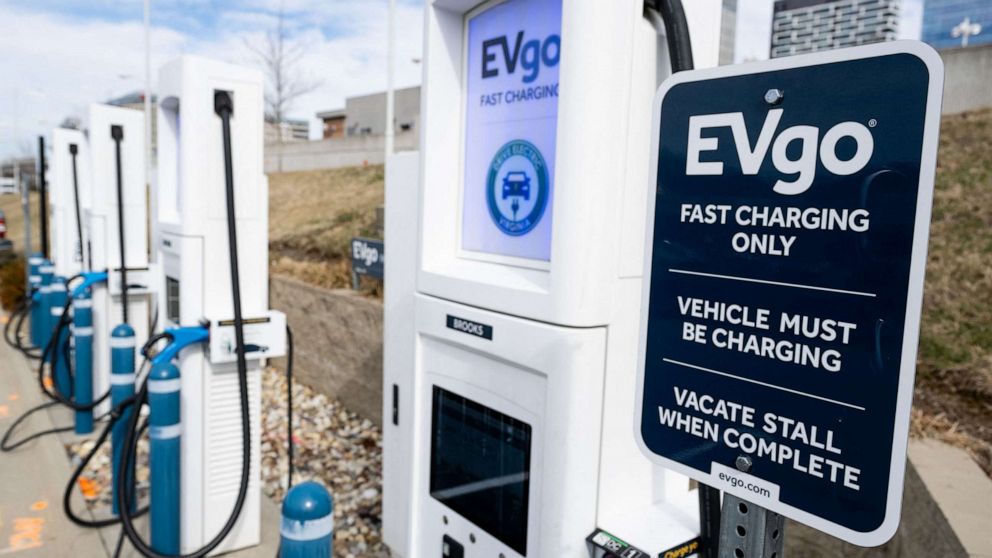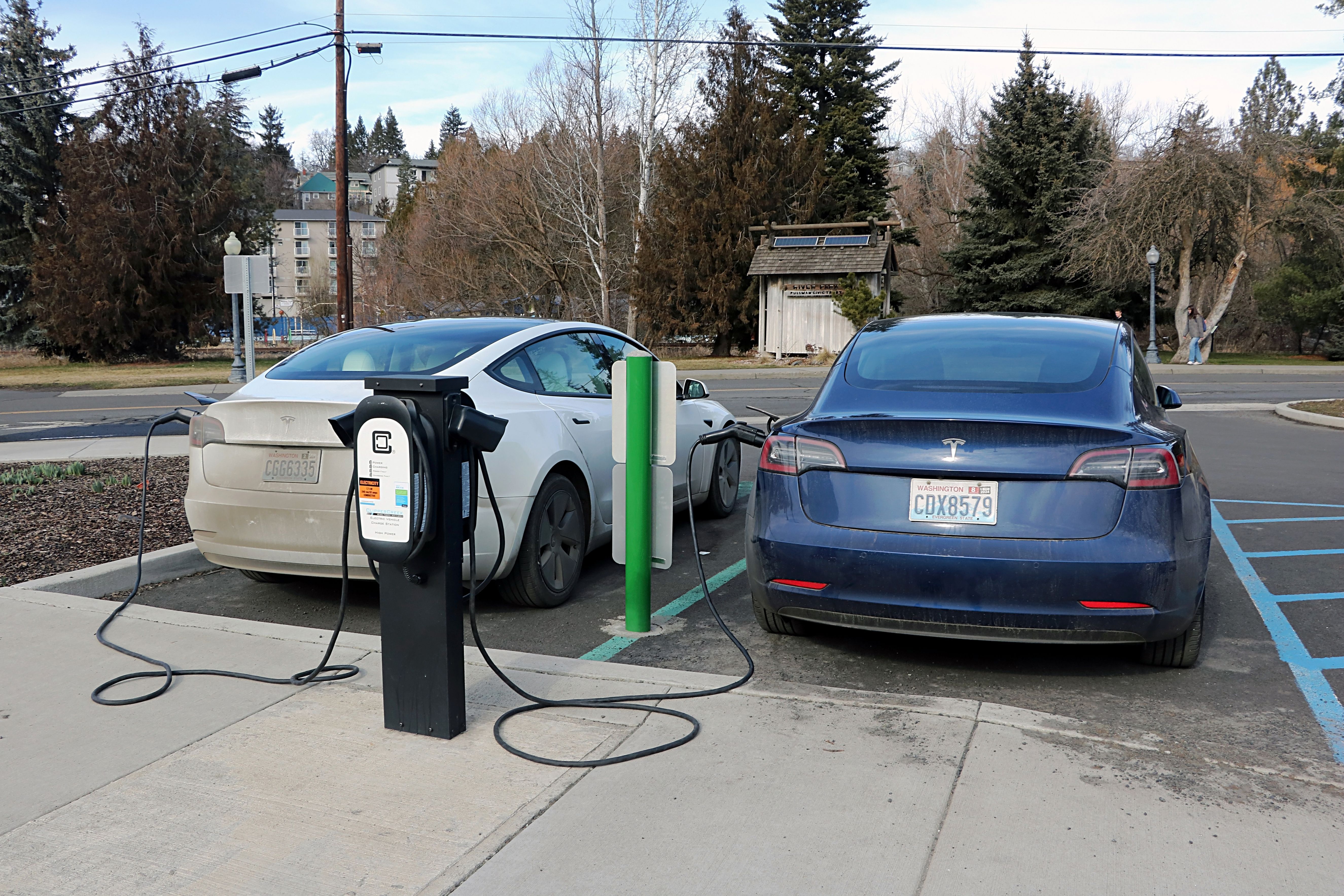New Dope in EV Charging: How the Sector Is Progressing to Meet Need
As the electric lorry (EV) market continues to expand, the charging infrastructure is undertaking substantial changes to address the rising demand. The ramifications of these developments raise important questions regarding the future of EV charging and its function in the more comprehensive energy ecosystem.
Development of Charging Facilities
The fast development of electric lorry (EV) billing facilities is a vital element in promoting the widespread adoption of electrical flexibility. As governments, exclusive business, and consumers increasingly recognize the value of decreasing carbon emissions, financial investments accountable networks have actually surged. This infrastructure growth is essential to ease variety stress and anxiety, guaranteeing that EV customers have practical accessibility to charging stations.
Substantial developments in billing station innovation and release strategies have actually emerged. Urban locations are seeing a proliferation of public charging terminals, while country areas are progressively being incorporated right into the billing network. Collaborations in between automotive producers and billing service providers are becoming extra typical, assisting in the establishment of thorough networks that improve individual experience and availability.
Furthermore, the combination of renewable energy resources into charging stations is gaining momentum, promoting sustainability in the EV ecosystem. This shift not just supports ecological objectives but also lines up with the increasing demand for green power services among consumers.
Ultra-Fast Charging Technologies
Ultra-fast billing innovations stand for a considerable leap ahead in the EV billing landscape, making it possible for electric lorries to charge in a portion of the moment compared to traditional billing techniques. These technologies usually deliver power degrees going beyond 150 kW, with some systems rising to 350 kW or more, drastically reducing charging times to as low as 15-30 minutes for a significant cost.
Key enabling modern technologies include advancements in battery chemistry, power electronics, and thermal monitoring systems. As an example, high-capacity batteries with boosted thermal security enable faster billing without overheating. Additionally, advancements in billing framework, such as liquid-cooled cables and modular charging stations, promote reliable power transfer, boosting the general individual experience
Significant automobile manufacturers and technology firms are actively purchasing ultra-fast charging networks, recognizing the critical role they play in conquering variety anxiety and accelerating the adoption of electrical cars. As these technologies end up being more extensively available, the EV market is anticipated to witness significant growth, making electrical mobility a more eye-catching choice for customers. On the whole, ultra-fast charging innovations are crucial in shaping the future of sustainable transport, leading the way for a more comprehensive and reliable billing ecosystem.
Smart Grid Integration

Through need response approaches, clever grid systems can change charging routines based on grid problems and electrical power prices. Throughout durations of high demand, charging can be delayed to off-peak hours, resulting in lower prices for customers and minimized pressure on the grid. Additionally, vehicle-to-grid (V2G) innovations make it possible for EVs to release energy back right into the grid, improving and offering secondary solutions grid security.
Combination with renewable resource sources better increases the sustainability of EV charging. By lining up charging activities with periods of high solar or wind generation, smart grids advertise a greener billing facilities. Inevitably, wise grid combination not only sustains the expanding need for EVs yet also contributes to a much more resistant and lasting power future, positioning the industry for long-term success.
Battery Developments
Amidst the fast development of electric automobiles (EVs), battery advancements stand at the leading edge, driving developments in sustainability, performance, and efficiency. As the demand for EVs surges, researchers and suppliers are concentrating on boosting battery innovations to attend to challenges such as array anxiousness and billing times.
Lithium-ion batteries stay the most extensively utilized innovation, yet brand-new products and chemistries are arising to improve energy thickness and longevity. Solid-state batteries, for example, promise greater power storage capability and enhanced security by changing fluid electrolytes with strong ones. This shift can dramatically lower the threat of fire and enhance the life expectancy of batteries.
Moreover, developments in battery recycling processes are important for sustainability. Firms are creating methods to recoup important products like lithium, cobalt, and nickel from made use of batteries, promoting a circular economic climate and lowering environmental impact.

International Charging Requirements

Initiatives are underway to establish international billing standards that promote compatibility among numerous EV models and charging stations. Organizations such as the International Electrotechnical Compensation (IEC) and the Culture of Automotive Engineers (SAE) are functioning collaboratively with automobile makers and energy carriers to produce thorough guidelines. EV Charging news. These criteria goal to improve the charging procedure, minimize the need for several adapters, and boost customer experience
Additionally, standardization can significantly reinforce the expansion of the charging network, as it urges financial investment by making facilities advancement much more efficient and predictable. As the EV market develops, a unified method to charging standards will certainly be crucial for guaranteeing that consumers can charge their vehicles easily and accurately, consequently sustaining the broader shift to sustainable transportation.
Final Thought
The electric automobile billing market is going through significant improvement to attend to the rising demand for sustainable transportation. Developments accountable infrastructure, ultra-fast innovations, clever grid assimilation, and cutting-edge battery services are critical in enhancing user experience and operational performance. The pursuit of worldwide billing requirements is vital for ensuring interoperability throughout various regions and systems. Collectively, these developments position the industry to support a broader fostering of electrical vehicles, eventually adding to an extra lasting future.
Urban locations are seeing a proliferation of public billing stations, while rural areas are progressively being incorporated into the billing network. Furthermore, growths in charging framework, such as liquid-cooled wires and modular billing stations, facilitate reliable power transfer, improving the general individual experience.
Overall, ultra-fast billing technologies are essential in forming the future of sustainable transport, paving the method for a more considerable and effective charging community. - EV Charging news
By aligning charging activities with durations of high solar or wind generation, wise grids advertise additional info a greener charging framework.Initiatives are underway to develop worldwide charging requirements that help with compatibility amongst different EV versions and charging terminals.